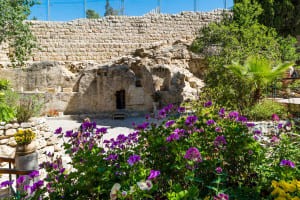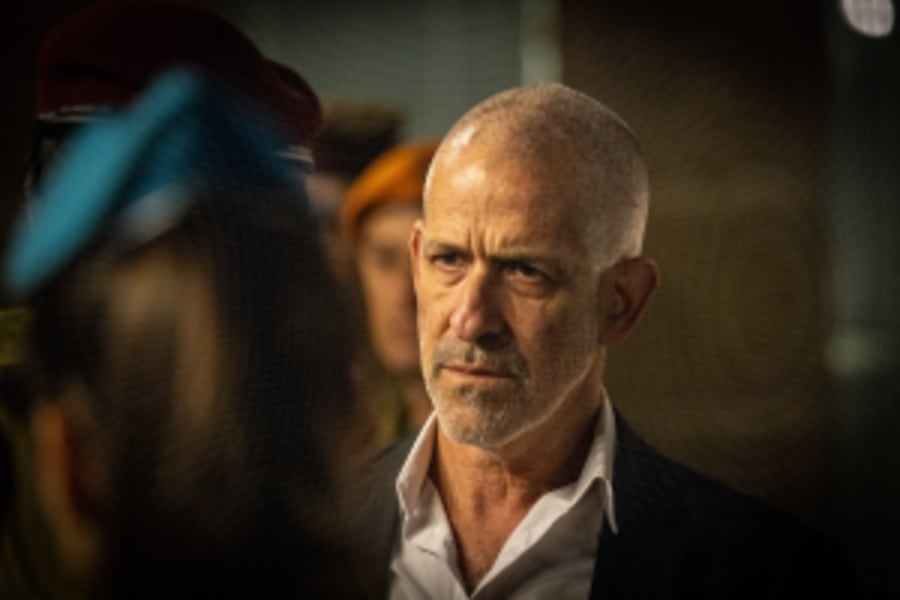Arab Christians are fleeing Israel due to war, crime and racism

In the heart of the Middle East, Christian communities are dwindling. What was once a hopeful belief among many Arab Christians – that Israel, as a democratic state in the region, could offer stability and security – is slowly eroding.
More and more families are considering emigration. This isn't just talk confined to church walls; it's a growing conversation heard on the streets, in shops, and especially among younger generations.
"Do you miss the old Nazareth?" one is asked. "Yes," comes the reply, "I miss the closeness between women of all faiths. Today, it’s harder to be a Christian here."
There are around 180,000 Arab Christians in Israel, making up less than 2% of the total population. Most live in the Galilee or Haifa. The city of Nazareth holds great religious significance. Yet, even here, a crisis of faith and belonging is evident. Older generations cling to their deep roots: "How can you leave the Holy Land? This is where our grandparents lived. It’s where it all began." But for younger people, those ties are weakening.
Many no longer see their future in Nazareth. Once, due to housing shortages, Christian families moved to nearby cities like Haifa, Nof HaGalil, and Afula. Today, the discussion centers on emigration – not just among Jews and Muslims, but increasingly among Christians as well. The United States, Europe, and closer destinations, like Cyprus and Greece, are being considered.
Some initiatives even promote real estate investment abroad. Cyprus, ranked as the fifth safest country in the world, is a growing destination for Arab Christians from Israel. Communities are already forming, supported by friends and family who have gone ahead. "It’s nearby, the weather is similar, and the people are culturally close," one man says. Families are banding together to emigrate and set up small communities overseas.
Still, not everyone is ready to leave. "I’m from the older generation," says one man from Rimon. "I want to stay. But I’m not sure my daughters will. They’re starting to question why we’re still here." In Nazareth—a city of 65,000 people, 60% of whom are Muslim – Christian emigration is on the rise, raising alarm among community leaders.
For them, this is more than a demographic concern—it’s a test of faith. The church, they say, is more than a place of prayer. It is a social center, a home for Christian identity in the Holy Land. Community needs like belonging, safety, and continuity are tied to it. In 2005, the Latin Patriarchate helped establish a gated community on former monastery land, creating 56 housing units for Christian families. "People call them ghettos, but we prefer to call them gated communities—places where we feel safe," one resident explains.
But even safety feels increasingly elusive. In cities like Shefar’am, religious tensions have flared. Viral videos have fueled incidents where Christian youths are targeted. A 16-year-old boy was attacked just for wearing a cross. During Easter, a violent incident occurred at the largest Catholic church in the city. Some Christian business owners say they’re pressured to pay protection money – seen as easy targets because they’re successful.
And it's not just Muslim extremists. Christian clergy and nuns in Jerusalem have reported attacks by Jewish extremists for years. Few of these cases are addressed by the authorities. Meanwhile, Christians in Israel watch events in Syria and Egypt and wonder if they are next. A Christmas tree was set on fire in a Syrian Christian city – a small event with a heavy symbolic weight.
"There’s a deep connection between us and Christians across the Middle East," says one man. "When we see them being killed, we feel it here too. We feel helpless, like we can’t help them. Jews abroad support Jews here with donations and volunteers. We want to do the same for our people."
Father William Abu Shkrah sees confronting emigration as a religious calling. "There are always tensions. But this is our homeland—Jesus was born here. We must not think of leaving. We need to teach our children to stay and preserve the holy sites."
Despite the challenges, the Christian community in Israel is thriving in many ways. 87% of Christian students graduate from high school. Over 70% of working-age Christians are employed. Crime rates are significantly lower among Christians compared to other Arab and Israeli groups. "We may be a minority," one speaker says, "but our contribution is three times greater—whether in education, medicine, or civil life."
And yet, many feel ignored. "The state overlooks the Christian community. We’re absent from politics, from government institutions. It’s hard to get into public service. That’s a big loss."
He recalls figures like the late Judge Salim Joubran and actors Norman Issa, Youssef Abouadi, and Youssef Soud – beloved and respected leaders who used to pray in the local church. "My fear," he adds, "is that if the Jewish majority doesn't love and care for each other, how will they love and care for us? If the country keeps moving in a more extreme direction, we won’t be able to live here anymore."

The All Israel News Staff is a team of journalists in Israel.














